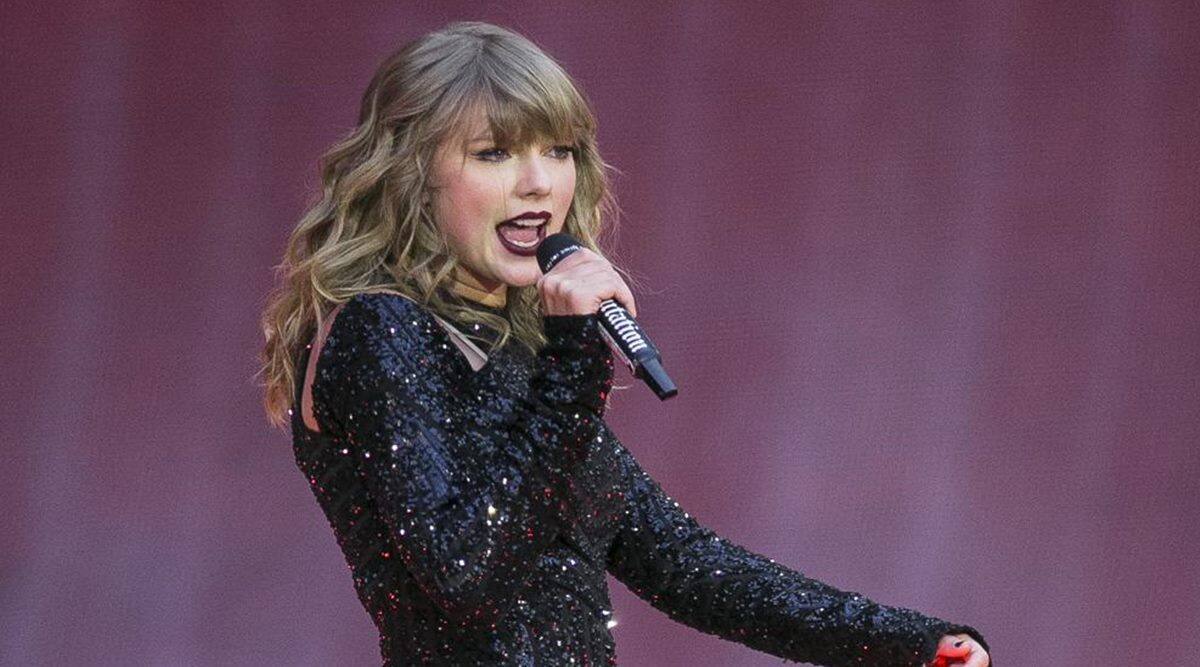Millions of people flocked to a presale for Taylor Swift’s much anticipated Eras Tour on November 15, which led to crashes, lengthy lines, and frenzied purchases.

Some Taylor Swift fans would like you to understand three things: They are no longer 16, have jobs and resources, and have jobs and resources, and they are mad right now. According to researchers, this is a politically powerful catalyst. Take a look at what Ticketmaster forced them to do.
It all started on November 15, when millions of people flocked to a presale for Swift’s long-awaited Eras Tour, giving rise to crashes, huge queues, and feverish purchases. Ticketmaster canceled the general sale by Thursday, citing insufficient extra tickets and summoning a hurricane in the form of public uproar. Swift herself mentioned that the predicament “really infuriates me.”
Although Ticketmaster apologized, the seeds of rage had already been sowed and bad blood flooded the veins of Swifties. So now, fans — as well as politicians — are forging ahead.

Enraged fans take matters into their own hands
Swifties were directed to the US Department of Justice by US Representative Alexandria Ocasio-Cortez. Investigations were mandated by several state attorney generals, especially in Pennsylvania and Tennessee, both key states in Swift’s origin story.
Stephanie Aly, a Nyc professional with expertise in community organizing for progressive ideals, has long believed that mobilizing fandoms for social reform could be advantageous.
“Fandoms are natural organizers,” Aly, 33, explained. “You can influence real change if you identify the right concerns and stimulate and engage them.”
Swifties are banding together, ready to take everyone on
In 2020, for example, K-pop fans banded together to support the Black Lives Matter movement and to increase registration for a Donald Trump protest. Aly and Swifties from various industries — law, public relations, cybersecurity, and more — have banded together to form Vigilante Legal, a group petitioning for policy change surrounding Ticketmaster and organizing Swifties, as well as creating email frameworks to gather signatures from attorneys general and supplying antitrust data. Thousands of people have indicated an interest in assisting or learning more.
The level of rage you’ve recently witnessed throughout the nation over this issue is astounding, according to Jean Sinzdak, associate director of the Center for American Women and Politics at Rutgers University. “People are discussing their feelings about it and creating a movement about it online, which I think is quite intriguing.” It is unquestionably an attempt to interact with people politically. It’s difficult to say whether it will last, but it feels like an excellent chance.”
According to Sinzdak, this gives Swift’s huge fan base of young people a front-row seat to how policy is formed. It’s also geared at a demographic that policymakers seldom if ever court during campaign season.
Fandoms and political engagement
Nobody intentionally targets young women, according to Gwen Nisbett, a professor at the University of North Texas who studies how politics and pop culture interact. Young women in that age bracket are highly mobilized, whether the issue is abortion or student loans.
Both fan community and fan culture have increased this propensity for mobilization. When formerly apolitical Taylor Swift endorsed Democratic politicians on media platforms in 2018, Nisbett was researching para-social interactions, which occur when fans have close one-way relationships with celebrities. Although such posts might not affect fans’ voting decisions, Nisbett discovered that they nonetheless raised the possibility that fans would explore for more election-related information and cast a ballot.
For the record, according to AP VoteCast’s thorough poll of US voters, just about a 1/3 of Tennessee voters in 2018 expressed a positive view of Swift. A significant majority of these voters, or roughly 7 in 10, endorsed Democrat Phil Bredesen in the Senate race. That stood in stark contrast to the roughly one-third of voters who disapproved of Swift and who heavily supported Marsha Blackburn, a Republican.
According to Nisbett, Swifties are outraged with Ticketmaster for more than just the cost of the ticket: “It’s the fact that you can’t participate in your network and your fandom and it’s part of your identity.”
Even said, a fanbase or an artist has targeted Ticketmaster previously as well. In 1994, Pearl Jam targeted the firm, but the Justice Department finally decided not to file a lawsuit. Fans of Bruce Springsteen were reportedly irate over expensive tickets due to the platform’s dynamic pricing scheme.
In a classist society: “It’s about fundamental equality.”
“It’s not just about avenging Swifties. It’s not about getting a fresh million Taylor Swift tickets or all of us going to a secret session,” said Jordan Burger, 28, who employs his legal knowledge to support the cause. “It’s about fundamental equality.” And when you have a monopolist like that, it’s just so indicative of the typical class structure of a society where there is no longer equality or fairness.”
The sheer magnitude and influence of Swift’s fandom have sparked discussions about economic inequality, which is only epitomized by Ticketmaster.
Aly pointed out that many of the group’s members did obtain tickets; the problem, she claims, is larger than Ticketmaster.
“We’ve heard some people say, ‘This is too big; let the states handle it. Have you seen the United States government?’ The government only operates when the people force it to and demand that it function, and when the people are engaged,” she explained. “Even when it appears that something is too big to fail or too influential to fail, there are always others to make a difference.” Your involvement could be the watershed moment that forces the government to act.”
READ MORE|| https://www.hindustantimes.com/entertainment/music/congress-to-hold-hearing-on-ticketmaster-fallout-of-taylor-swift-tour-sales-101669276559418.html
https://tdznkwjt9mxt6p1p8657.cleaver.live/life-of-pi-irrfan-khan-farewell-speech-fake-accent/













